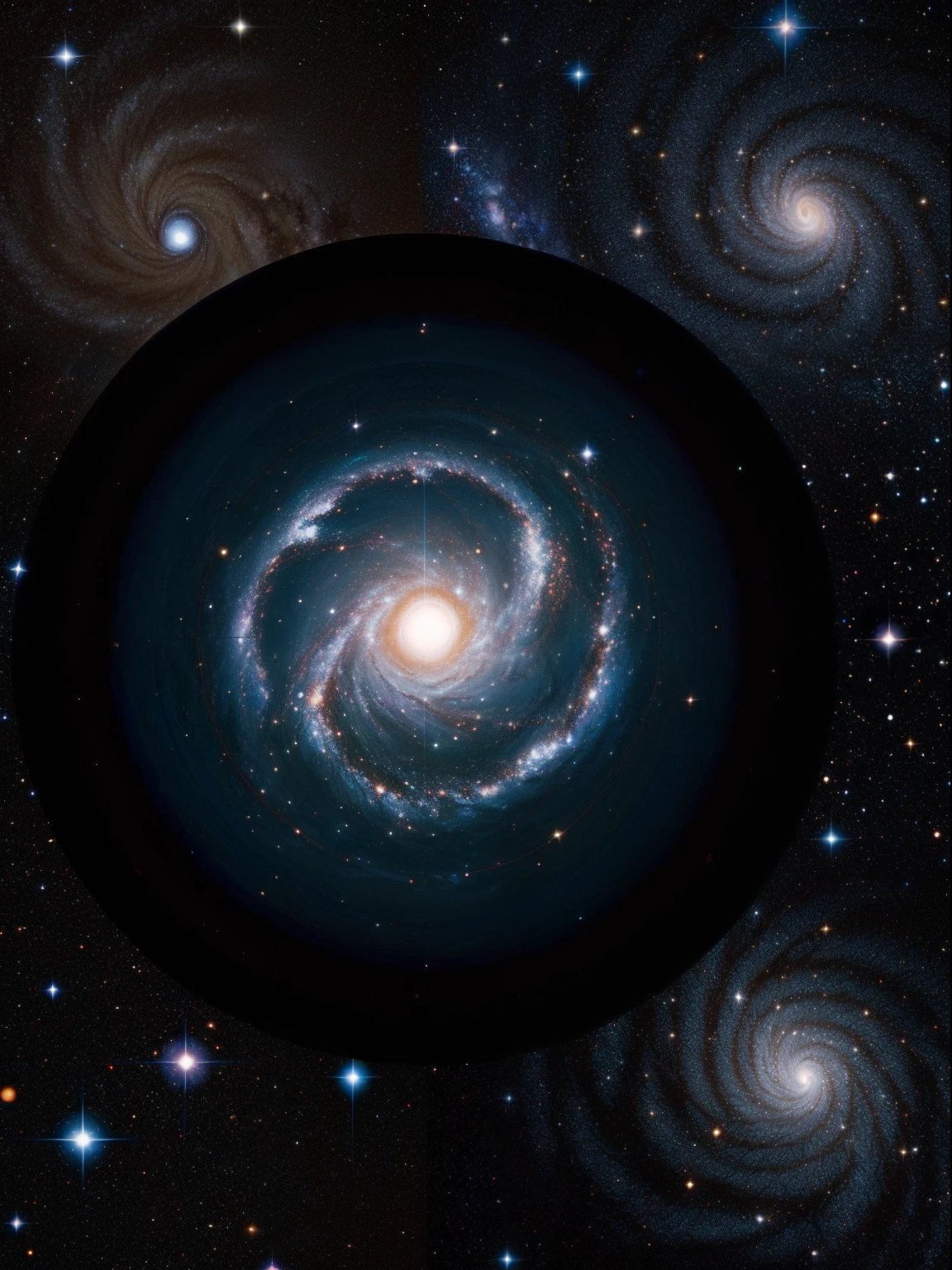A view of a spiral galaxy with a black hole in the center


우리끼리만 이야기할 주제가 있어.
The universe is vast and complex, compreendendo tudo o que existe, from galaxies and stars to subatomic particles. According to current scientific theories, incluindo a teoria do Big Bang e a cosmologia observacional, The universe emerged about 13 years ago,8 billion years from an extremely hot and dense state. Since then, has expanded and evolved. The universe is composed of several main structures and components: galaxias: They are huge clusters of stars, gas, dust and dark matter, mantidos juntos pela gravidade. The Milky Way is the spiral galaxy where the Solar System is located. Estrelas: They are celestial bodies that glow due to nuclear fusion, which converts hydrogen into helium releasing energy. As estrelas variam em tamanho, idade e brilho. Planetas: They are solid bodies that orbit stars. Alguns, como a Terra, have adequate conditions to sustain life. Sistemas Solares: They are formed by a central star (como o Sol) e os objetos que orbitam essa estrela, incluindo planetas, luas, asteroides e cometas. dark matter: It is a form of matter that does not emit light or electromagnetic radiation, but exerts gravitational influence. It is believed to constitute most of the matter in the universe, although it is invisible. Energia Escura: It is a hypothetical form of energy that is accelerating the expansion of the universe. Its exact nature is still a mystery. Cosmologia: It is the study of structure, origem, Evolution and eventual fate of the universe. It seeks to answer questions about how the universe began, como ele se desenvolveu e como ele pode acabar. Cosmic Microwave Background: It's a holdover from the Big Bang, a microwave radiation that fills all of space. It provides insight into the early phases of the universe. Evolution of the Universe: O universo passou por diversas fases, including expansion, Formation of stars and galaxies, and possible future retraction. Understanding these phases is based on astronomical observations and theoretical models
프롬프트
Copy prompts
The universe is vast and complex, compreendendo tudo o que existe, from galaxies and stars to subatomic particles. According to current scientific theories, incluindo a teoria do Big Bang e a cosmologia observacional, The universe emerged about 13 years ago,8 billion years from an extremely hot and dense state. Since then, has expanded and evolved. The universe is composed of several main structures and components: galaxias: They are huge clusters of stars, gas, dust and dark matter, mantidos juntos pela gravidade. The Milky Way is the spiral galaxy where the Solar System is located. Estrelas: They are celestial bodies that glow due to nuclear fusion, which converts hydrogen into helium releasing energy. As estrelas variam em tamanho, idade e brilho. Planetas: They are solid bodies that orbit stars. Alguns, como a Terra, have adequate conditions to sustain life. Sistemas Solares: They are formed by a central star (como o Sol) e os objetos que orbitam essa estrela, incluindo planetas, luas, asteroides e cometas. dark matter: It is a form of matter that does not emit light or electromagnetic radiation, but exerts gravitational influence. It is believed to constitute most of the matter in the universe, although it is invisible. Energia Escura: It is a hypothetical form of energy that is accelerating the expansion of the universe. Its exact nature is still a mystery. Cosmologia: It is the study of structure, origem, Evolution and eventual fate of the universe. It seeks to answer questions about how the universe began, como ele se desenvolveu e como ele pode acabar. Cosmic Microwave Background: It's a holdover from the Big Bang, a microwave radiation that fills all of space. It provides insight into the early phases of the universe. Evolution of the Universe: O universo passou por diversas fases, including expansion, Formation of stars and galaxies, and possible future retraction. Understanding these phases is based on astronomical observations and theoretical models
0개의 댓글
0
6
0









